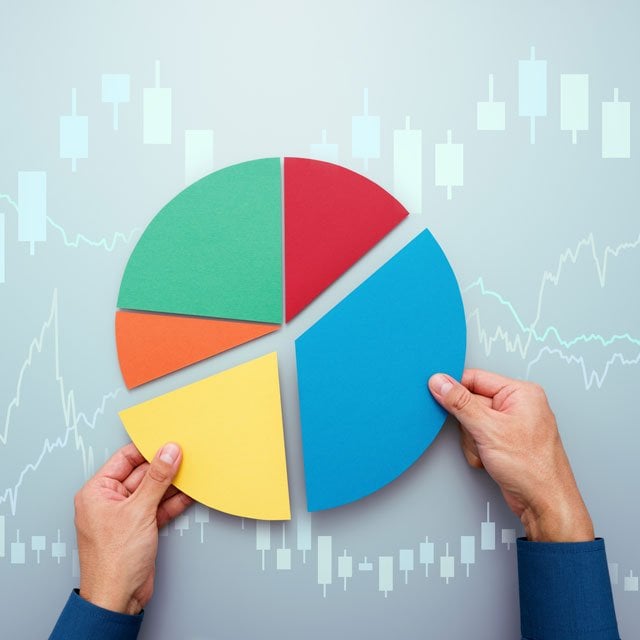12 Best Countries for Retirement Security: 2021
Related: 12 Best Countries for Retirement Security: 2020
Many Americans see their retirement dreams slipping away, according to the 2021 Global Retirement Index (GRI) released this week by Natixis Investment Managers. This is the result of the pandemic's macroeconomic consequences, including increased government debt, rising inflation and persistently low interest rates. The U.S. ranked 17th in the annual snapshot of the relative financial security of retirees in 44 developed countries, down one spot from last year. In a survey of 750 U.S. individual investors, Natixis found that 41% of respondents — including 46% of Gen Y, 45% of Gen X and 30% of baby boomers — believe they will need a miracle to be able to retire securely. Seventy-three percent recognize that they are increasingly responsible for funding retirement rather than relying on a pension or Social Security, but 42% say it will be hard to make ends meet if Social Security benefits are lower than they expect; this includes 31% of those with a net worth of $1 million or more. Fifty-nine percent of respondents accept that they will have to work longer than they had anticipated. Worse, 36% believe they will never have enough money to retire, including 51% of Gen Y, 48% of Gen X and 20% of boomers. About two-thirds see long-term inflation as one of the biggest risks to their retirement security and worry that health care costs will consume their savings. Half worry that low interest rates will make it harder to generate income in retirement. "The pandemic has exacerbated financial inequality and accelerated long-term trends that are eroding the prospect of retirement security for many," Jim Roach, senior vice president of retirement strategies at Natixis Investment Managers, said in a statement. "As policymakers look to normalize fiscal and economic policy in the wake of the pandemic, Natixis Investment Managers' Global Retirement Index provides insight into the factors having the greatest impact on retirement security around the world."
U.S. Index Ranking
The GRI examines 18 performance indicators of retiree welfare grouped into four thematic sub-indexes:
- Material well-being: the material means to live comfortably in retirement
- Finances in retirement: access to quality financial services to help preserve savings value and maximize income;
- Health: access to quality health services
- Quality of life: a clean, safe environment in which to live
Private Sector Opportunity
Although Washington's policy actions in response to the pandemic helped spur recovery and growth, they represent a significant long-term risk to retirees who are especially vulnerable to low yields and face the challenge of generating a sustainable income in retirement. "The challenge is compounded as retirees invest in riskier assets to generate the returns they need at a point in life when they may not have the time to recoup potential losses," Dave Goodsell, executive director of Natixis IM Center for Investor Insight, said in the statement. "Fortunately for today's policymakers, low interest rates make debt more manageable. However, growing levels of public debt and the need to find budgetary solutions will force tough decisions about government spending, including public retirement benefits, raising taxes, raising the retirement age and cutting benefits." Natixis IM's survey found that in the U.S. 83% of investors remain confident they can securely retire, and on average are saving 18% of their current income for retirement. If government benefits, workplace savings and personal savings should fall short, many Americans believe the answer is simply to work longer. Yet 39% worry they will not be able to stay employed even if they want to. One-third of investors think that retirement might never be an option. The conundrum is so great, Natixis IM said, that nearly half avoid thinking about their retirement security altogether. Citing Cerulli's research, it noted that these findings represent a population of investors with a median net worth of $450,000, who have accumulated a median of $350,000 in savings for retirement — which is far more than the median of $65,000 saved for retirement by the general U.S. population. Here's where financial advisors and employers come in. Eight in 10 U.S. investors believe that employers have a responsibility to help their employees achieve a financially secure retirement, and say they would prefer to work for a company that offers a retirement plan savings match. Sixty-three percent of investors say they need professional help with selecting investments in their workplace retirement plan, which 36% of boomers and at least a fifth of younger investors say they do not understand. Seventy-three percent of Gen Y and 65% of Gen X say they need professional financial advice, compared with 57% of boomers. And two-thirds of investors say they would be motivated to invest more for retirement if they had access to investments more closely aligned with their priorities and values. See the gallery for the top 12 developed countries in the 2021 Global Retirement Index.
© Touchpoint Markets, All Rights Reserved. Request academic re-use from www.copyright.com. All other uses, submit a request to [email protected]. For more inforrmation visit Asset & Logo Licensing.
Featured Resources
View All
Sponsored by Axos Advisor Services
Integrated Banking Solutions: How To Enhance Client Services and Grow Your Business

Sponsored by Optifino
Three Macro Trends Impacting Long-Term Care: Trends, Solutions & Client Conversations

Sponsored by Vanilla
The Missing Piece: Why Advisors Who Skip Estate Planning are Failing Their Clients







